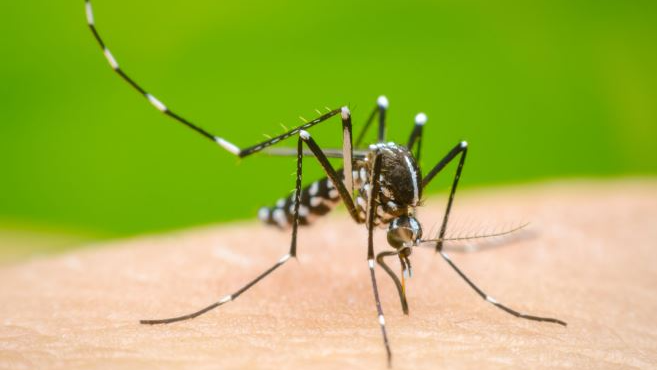Dengue fever is a serious illness transmitted by Aedes mosquito, which thrives in areas with stagnant water. Preventing mosquito breeding is crucial to reducing the risk of dengue fever. Here are some effective ways to keep your home and surroundings mosquito-free:
1. Eliminate Standing Water
Drain Containers: Empty and clean containers like buckets, flower pots, and bird baths regularly. Mosquitoes lay eggs in stagnant water.
Dispose of Old Tires: Old tires can collect rainwater and become breeding grounds for mosquitoes.
Cover Water Storage: Ensure water storage containers are tightly covered to prevent mosquitoes from laying eggs.
2. Maintain Clean Gutters
Clear Debris: Regularly clean leaves and debris from gutters to prevent water from collecting.
Check for Blockages: Ensure downspouts and drainage systems are free from blockages.
3. Use Mosquito Nets and Screens
Install Screens: Fit windows and doors with fine mesh screens to keep mosquitoes out.
Use Bed Nets: Sleep under mosquito nets, especially in areas with high mosquito activity.
4. Apply Mosquito Repellents
Use Repellents: Apply mosquito repellents containing DEET, picaridin, or oil of lemon eucalyptus to exposed skin and clothing.
Wear Protective Clothing: Wear long sleeves, long pants, and socks to reduce skin exposure.
5. Regularly Inspect Your Home
Check Drains and Sumps: Ensure that water does not stagnate in drainage areas or sumps.
Inspect Roofs: Ensure water does not accumulate on flat roofs or tarpaulins.
6. Promote Natural Predators
Introduce Fish: Add mosquito-eating fish, such as guppies or goldfish, to ornamental ponds or water features.
Encourage Bats and Birds: Create an environment that attracts mosquito predators like bats and birds.
7. Use Larvicides
Treat Water Sources: Use larvicides in water storage tanks, drains, and other water bodies that cannot be emptied.
Follow Guidelines: Apply larvicides according to local health authority recommendations.
8. Maintain Your Garden
Trim Plants: Keep plants and bushes well-trimmed to reduce mosquito hiding places.
Remove Litter: Clear your garden of leaves, twigs, and other debris where water can collect.
By implementing these precautions, you can significantly reduce the risk of mosquito breeding in and around your home, helping to protect yourself and your family from dengue fever. Regular vigilance and proactive measures are key to maintaining a mosquito-free environment.



















































